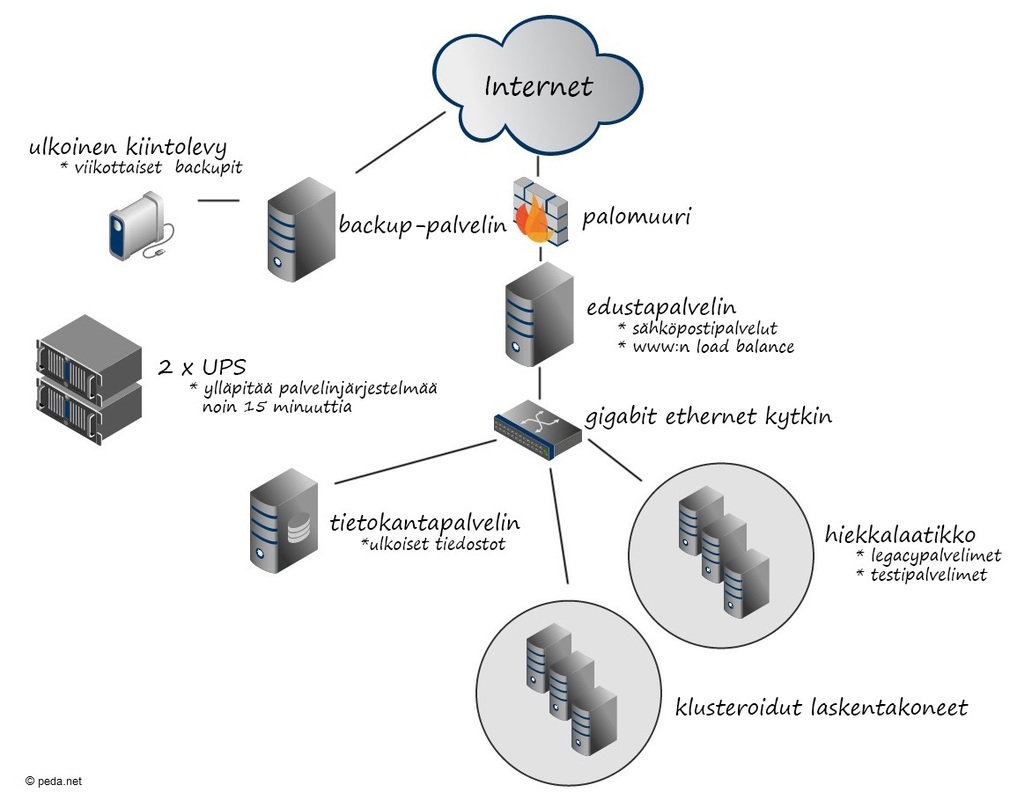Research and development
Online tools development
Development principles for online tools
 To develope user-friendly and human oriented online tools in cooperation with the project members.
To develope user-friendly and human oriented online tools in cooperation with the project members.- No tool is developed unless it possesses a justified purpose in addition with the sufficient amount of potential users.
- Online tools must be both reliable and usable, also when used with the mobile data connection.
- Online tools are designed to serve practical function and thus they should be designed to also look such.
- All the online tools work in browser and they are offered to use from ASP servers. Educational institutions' don't need to take charge of maintenance nor update work.
- All the tools are environment independent, i.e. user don't need to choose any specific operating system like Windows or Mac.
- All the tools are created in acknowledge of special groups' needs. The principle is that if the tool cannot be used as it is, modifying a special user interface version is as easy as possible.
- Multiple language versions are used, and all the tools are easily translatable.
- All the tools are open source originated.
Research
 Peda.net school network operates in cooperation with Finnish Institute for Educational Research: human oriented information and communication technologies research group. This research group examines different ways that help to take advantage of technologies in different learning environments. Two target areas are collaborative online learning and game-like learning environments. In addition, the group does national and international evaluation of ICT usage in education and helps to develope innovative teaching and training methods and technological appliances that support those methods.
Peda.net school network operates in cooperation with Finnish Institute for Educational Research: human oriented information and communication technologies research group. This research group examines different ways that help to take advantage of technologies in different learning environments. Two target areas are collaborative online learning and game-like learning environments. In addition, the group does national and international evaluation of ICT usage in education and helps to develope innovative teaching and training methods and technological appliances that support those methods.
Research data includes both individuals and groups. Group examines study subjects in situations where ICT can support learning and give additional value to learning processes. The research is both interdisciplinary, theoretical study, and development oriented study motivated by practical needs.
The part of study that involves Peda.net school network is development oriented study, and it is done in cooperation with member schools and teachers. The research includes not only educational institutions' and organizations' personnel but also other national and international authorities working in the same field.
The administrator of research group:
Päivi Häkkinen
Professori (Tietoteknologian opetuskäyttö)
Puh. 014 260 3231
paivi.hakkinen@ktl.jyu.fi
More information:
http://ktl.jyu.fi/ktl/tutkimus/tvt
Peda.net service technical description
1. General description
Peda.net developes pedagogical applications in cooperation with Peda.net members. All the applications can be used in browser accordingly with ASP (Application Service Providing) principles via https://peda.net domain.2. Software development
Peda.net software development follows mainly agile development principles and participatory design methods.Most important technologies used in development:
- HTML/XHTML
- CSS
- PHP
- SQL
- Linux
3. Server system
Peda.net online services are brought to customers via concerted server system. Services can be seen to customers via https://peda.net domain.Server system constitutes of several different servers that decentralize online applications functions.
Server system is situated in an air-conditioned room.

4. Connections
Peda.net server system is situated in the network of the University of Jyväskylä. That quarantees fast and reliable internet connection.5. Content storage
Servers' hardware systems are mirrored (RAID1). All the data in the servers is backed up daily to a different server situated elsewhere. This server maintains back-ups of last 7 days in addition with the back-ups of the past and on-going months' last days. In addition, off-site back-up is made once a week. Back-up files are stored in a way that quarantees, that some of the back-ups are physically situated in a different building.However, Peda.net cannot quarantee the persistance of a single file, and thus users are strongly adviced to backing up their own data.6. Information security
Users are in connection with the servers only through browser and Peda.net applications. Servers' operating systems can be accessed only with the personnel usernames. Depending on an application, passwords and usernames may be personal and private or more common and used by everyone. Log in is monitored through random generated single-use session identifiers (mainly cookies).